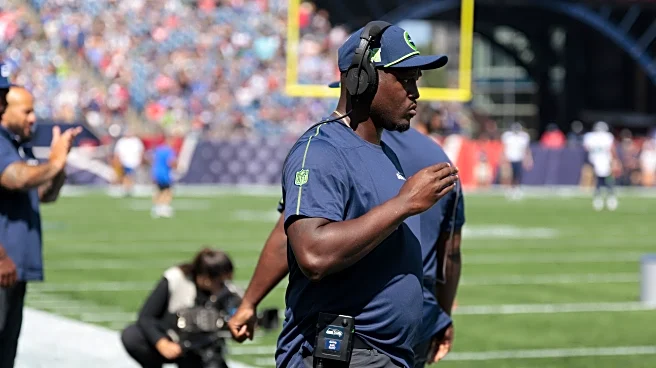What's Happening?
Target is gearing up for the holiday season by expanding its next-day delivery service to 35 top metro areas in the U.S. by the end of October. This move is part of a broader strategy to regain merchandising
authority and improve shopping experiences under the leadership of incoming CEO Michael Fiddelke. Target has announced 20,000 new products for the holiday season, with half being exclusive to the company. The retailer is also leveraging its flexible on-demand workforce to meet seasonal demands. Recent merchandising efforts include collaborations with popular brands and campaigns, such as Stranger Things and Woolrich.
Why It's Important?
The holiday season is crucial for retailers, and Target is facing unique challenges due to macroeconomic factors like tariffs and mixed consumer sentiment. The company's strategy to offer exclusive products and expand delivery services aims to attract value-driven consumers who are increasingly switching retailers. Target's ability to execute this strategy successfully could determine its market position and consumer confidence moving forward. The focus on value and convenience is essential as consumers are more price-conscious, and Target's pricing strategy relative to competitors like Walmart will be a key factor.
What's Next?
Target's execution of its holiday strategy will be closely watched to see if it can improve performance and regain consumer trust. The company's pricing position and ability to offer a frictionless shopping experience will be critical in attracting and retaining customers. As the holiday season progresses, Target's success in delivering value and convenience will be pivotal in shaping its future under Fiddelke's leadership.
Beyond the Headlines
Target's emphasis on exclusive products and pop culture releases may perform well short-term but could impact long-term brand distinction. The retailer's focus on creating an inspiring store experience and leveraging its membership ecosystem will be important in maintaining consumer loyalty. The broader implications of Target's strategy could influence retail industry trends, particularly in how companies balance exclusivity with accessibility.










